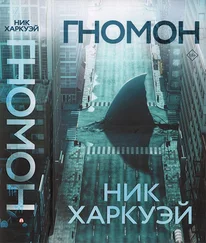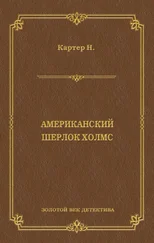So insh’Allah seemed to suppose too much. On Mancreu, you just said: what happens, happens . It was practically the national anthem.
When the Sergeant asked what to call him, the boy had glanced away and said ‘Robin.’ The Sergeant accepted the lie politely, but never adopted it, and as their acquaintanceship grew he avoided sentences that required him to use a name at all. In his mind, his friend was a unique identity, a presence which had no need of a borrowed label to encapsulate it.
Today, with the image of the pelican and the pigeon still causing occasional head-shaking, they left the Land Rover across the road from the café and bowed each other mirthfully across the threshold. It was not unknown for them to spend twenty minutes doing this, each insisting that the other go first, making more and more outrageous speeches of diplomatic deference. Today, though, they merely tussled, the boy shouting ‘Put up your dukes!’ and jabbing inexpertly at the Sergeant’s stomach until the man acknowledged himself subdued into accepting the honour and entering ahead of his friend. He paused two steps inside to allow his eyes to adjust.
Physically, the café was a single rectangular room, but it had the appearance of an L-shape because one corner was taken up by a rather grand wooden staircase that Shola had salvaged from a defunct hotel. The bar was topped with a sheet of folded copper, very worn and very much polished, and the tables were a hodgepodge of round and square. The rickety chairs were moved from one place to another by customers as they came and went, so that only when the café was absolutely full did anyone have to sit on the perilous yellow typist’s stool which Shola kept folded by the bar. Along the walls of the room were benches made from driftwood, silvered and polished smooth by years of slithering backsides.
In the crook of the staircase, with a patrician view of the door and the bar, there was the shtammteh , the table which was by common understanding Shola’s own. It was never reserved. It was simply not somewhere you sat unless you were invited. Even the boy and the Sergeant, upon arrival, made a show of dithering and finding a suitable place, and then Shola came and chided them and moved them to the shtammteh to take their tea with him.
The new delivery must just have arrived, because Shola served them a rich gunpowder tea which they had never had before, demanding to know what they thought of it. The Sergeant held a long swallow in his mouth, the perfect temperature baking his gums but not burning them, warming his throat and making his whole body feel cooler. He tasted pepper and smoke and the smell of snow. This was not tea. It was something else, a kind of elixir. It was what tea aspired to be.
‘It’s good,’ he said, and saw Shola’s mouth twitch in a smile.
The boy rolled his eyes. ‘He means totally awesome. This tea is made from hunnertenpercent secret inside-the-door-teaching tea fu ! It is the daddy of tea. This tea is the tea of Obi-Wan Kenobi on Tatooine. Every morning: this tea, then lightsaber practice. Strong in the Force!’ He made a lightsaber noise. Vvmwomm, Vvmwomm, TCHA FWSH!
Shola obligingly refilled his cup. ‘I should order more?’
Such an order was a statement of commitment to remain for another month. The boy nodded gravely. ‘I will come and drink it.’
Leaving – Leaving with a capital ‘L’ as opposed to merely going out of a shop or a house – had become a ritual. You couldn’t call it a tradition, because it wasn’t, would never be, old enough. It was a sort of shared insanity, like cutting your own flesh to see if it hurt. If you were Leaving, going away from Mancreu and not coming back – and tacitly everyone was Leaving, of course, no one had suggested the population should stay and die when the hammer fell, but still, Leaving before your neighbours was a form of defeat or desertion – then you threw a party. Above all, you had a bonfire, and you burned what you couldn’t take with you and couldn’t give away. Not just what no one wanted, but the things you couldn’t let go of, things you’d rather destroy with your own hand than see shattered by the impossible, cleansing heat that would burn Mancreu down to the rock, to the waterline and the granite on which the island stood, and past even that, down and down into the mantle of the Earth to scour the place of a generation of stupid human abuse.
In the beginning, Leavers had printed posters, spent money on them, tried to sell themselves on a festive atmosphere somewhere between a wake and a christening. This chapter is over, this world is over, but there is a new one! But the falseness of it, of forced departure claimed as opportunity, showed through like a broken bone. Now they wrote in white chalk on the black telegraph poles which connected Mancreu’s trembling phone network to the exchange: a wide, shamed L and then a time and a place, always after dark, always outside town. The Leavers came first, and the next to arrive were always other Leavers or those who knew they would be, very soon, and then the celebrants, the ones who had outlasted another crop of the weak. People wept and marriages shattered, truths were uttered which should have been kept deep inside. Family heirlooms, beautiful pieces of wooden furniture, jewellery, even pets and livestock burned. This wasn’t a clean break. It was sati by proxy, and that only because no one had yet been desperate enough, wild enough, sick enough in the heart to step into the flames. But the Sergeant had privately told Jed Kershaw that it was only a matter of time.
He had begun going along to all of them that he could, a sort of inverted ghost at the feast: the man from a cold, wet island which wasn’t going to burn. He stood outside the circle of the bonfire light and watched as first-edition books and prized saucepans joined photo albums and cradles on the pyre, put a stop to fights before they became feuds or murders. After the first few Leavings, the tone had shifted to something bacchanalian, and then fatigue had set in and replaced that with a sort of silent goodbye which was almost wholesome. Recently the mood was becoming one of breathless transgression: who could destroy the most valuable thing? Who could show their self-despite most graphically as they betrayed the only home they had ever known?
But his presence seemed to act as a sort of dampener, as if the uniform called everyone to remember that most British of virtues: the stiff upper lip. Or perhaps it was like being a Health & Safety inspector, and no one could really get crazy knowing he was around. He nodded sadly to grandmothers burning their feather mattresses and fishermen burning their coracles, to crab hunters immolating their traps and postmen burning their bicycles. He shook hands with the Leavers and sometimes that meant everyone else could suddenly stand to look at them and even talk to them after all. He was an undertaker, a cypher.
An army chaplain had once told him that she had spent years trying to find the right form of words for the bereaved, only to realise that the clichés were the best. Widows and orphans didn’t want to be comforted. They wanted to be recognised.
‘You say “it was very quick, he didn’t suffer,”’ the chaplain had told him. ‘You say “I’m sorry for your loss.” If you’re in a hospital and there’s one of those silences which needs breaking you say “I understand, at the end, he felt no pain” and then you fuck off and let them get on with it. If you want to get punched in the eye you say “he’s in a better place.”’
So the bonfires proceeded in something approximating an orderly fashion, which was almost worse than if they hadn’t, and the Sergeant had become a sort of necessary thing: you couldn’t have a real Leaving without him. The Last Consul had to be there to set the official seal on it, though it was clear to no one whether the seal meant excommunication or absolution.
Читать дальше
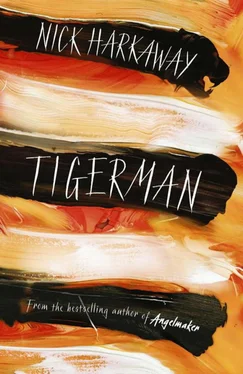


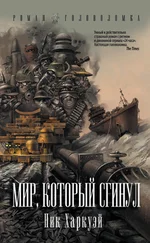


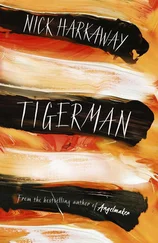
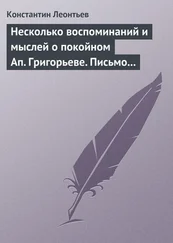
![Ник Харкуэй - Гномон [litres]](/books/400023/nik-harkuej-gnomon-litres-thumb.webp)
